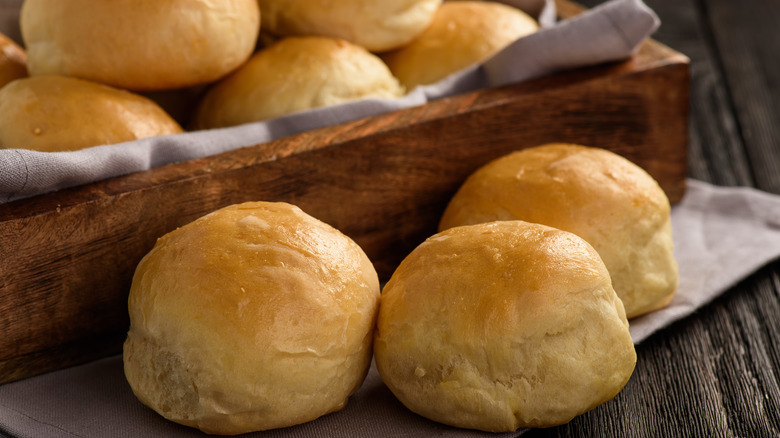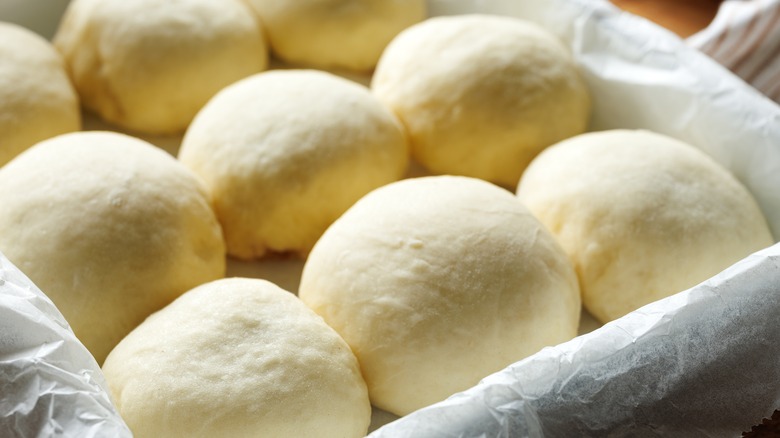Mashed Potatoes Are The Key To Dinner Rolls That Stay Soft And Fluffy
Potatoes are perhaps the most versatile carbohydrate staple of all, with their numerous varieties baked, boiled, and fried into countless iconic recipes. Mashed potatoes are certainly one of the most iconic preparations, using rich dairy products to transform starchy potato pulp into the silkiest version of itself. It's the same creamy, pillowy consistency and rich earthy flavor that makes mashed potatoes the ultimate upgrade for the softest, fluffiest dinner rolls.
Potato rolls are hardly a novel idea and are themselves a historic dish in both Pennsylvania Dutch and Irish cuisines. Irish potato bread used cooked potatoes to compensate for a scarcity of wheat flour. However, Pennsylvania Amish tradition elaborates potato rolls by blending wheat and potato flour with yeast, butter, and eggs. The potato flour creates a fluffier crumb while also imparting a delicious yet subtle depth of flavor.
Swapping potato flour with mashed potatoes brings more moisture, more dairy, and more potato flavor to your dinner rolls. Plus, the starch in the potatoes helps dinner rolls retain their moisture, extending their shelf life. While wheat flour yeast rolls tend to dry out in short order, potato rolls remain fluffy and moist for days. You can add mashed potatoes to your favorite wheat dinner roll recipe, adjusting the proportions of wheat flour. That said, there are plenty of potato bun and roll recipes out there that you can substitute mashed potatoes in place of the traditional potato flour or potato flakes.
Tips for incorporating mashed potatoes into dinner roll dough
Incorporating mashed potatoes into dough is as easy as adding a cup to the bowl along with the rest of the ingredients and mixing everything into a smooth ball. However, there are various hacks to prepare the mashed potatoes as an ingredient and not the main dish. Obviously, potato rolls are a great way to repurpose leftover mashed potatoes. That said, potato roll recipes using flakes or potato flour don't account for the seasonings you've already added to a batch of mashed potatoes.
So, if you do use seasoned mashed potatoes, you'll need to omit or scale down the amount of salt you add to the dough or use a bit more sugar to balance out the salt. It's also important to ensure that the mashed potatoes are uniformly smooth, so you don't end up with lumpy dough. Another option is to use mashed potato flakes, blending them in a bowl with water and whisking until smooth before adding them to the rest of your ingredients. If you don't have leftover mashed potatoes, this will streamline the process and save you the trouble of adjusting your seasonings. Lastly, you can make mashed potatoes on the spot while simultaneously incorporating them into your dough by adding a boiled potato with a bit of the starchy cooking liquid to a food processor with butter, salt, and sugar before adding it to the rest of the wet and dry ingredients.

